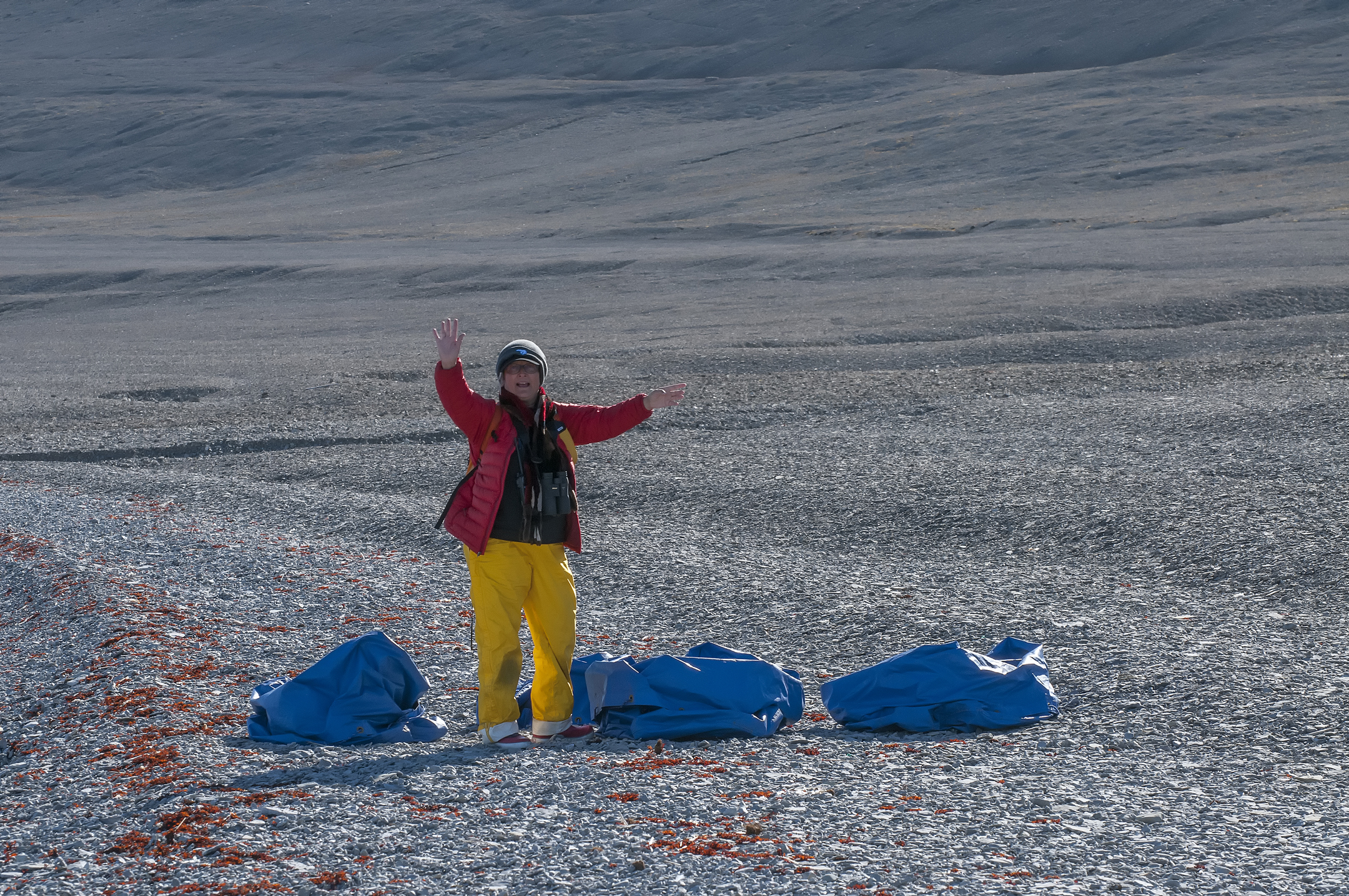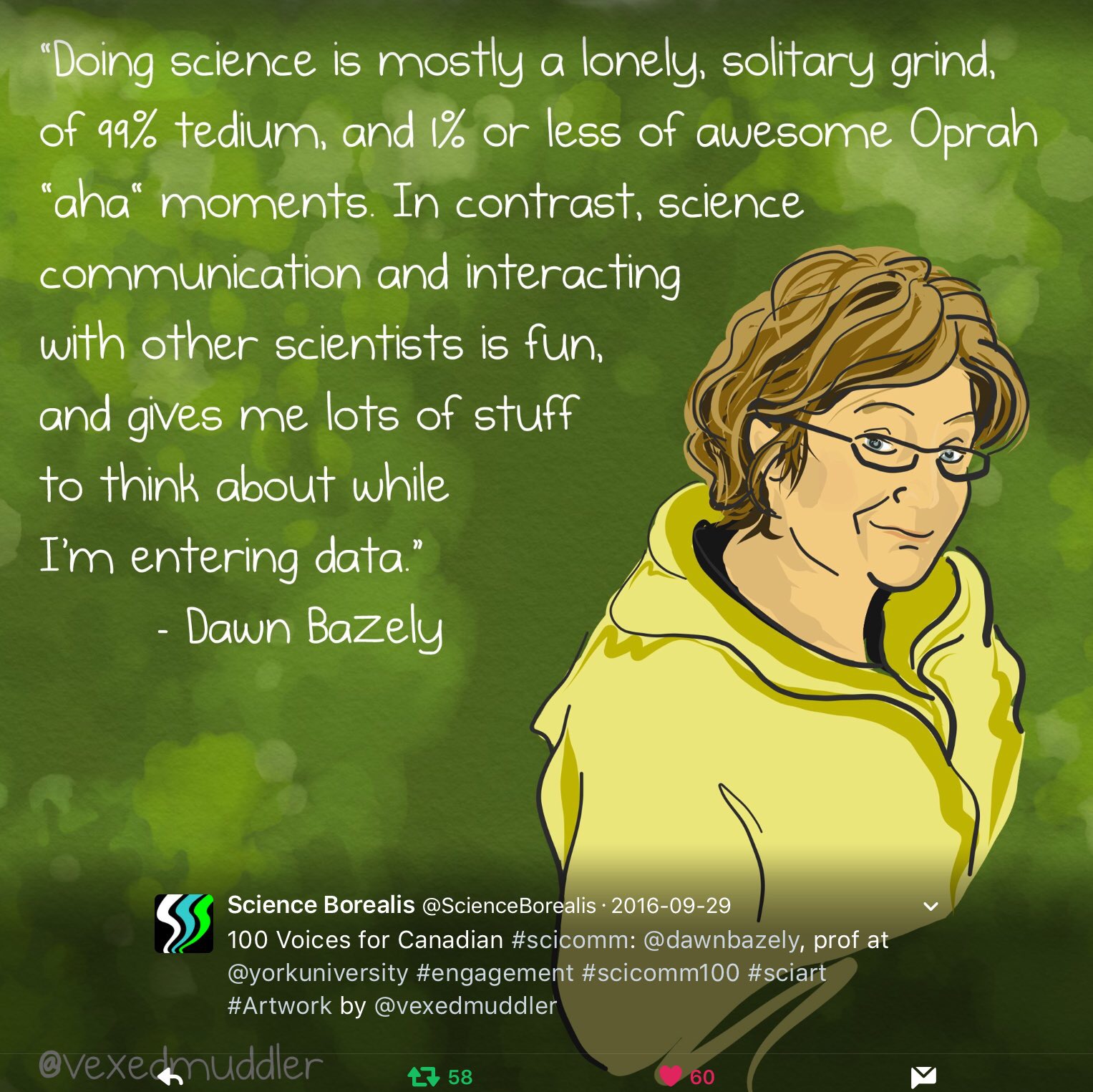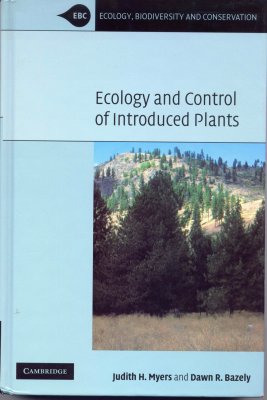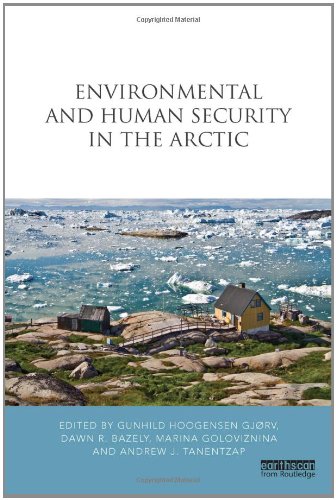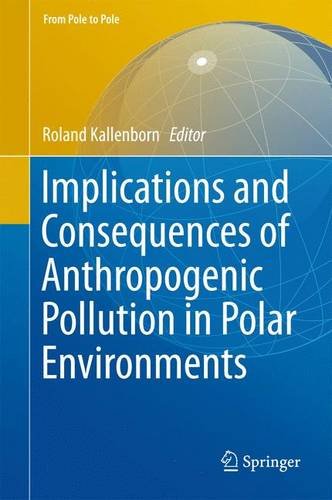
Media
Universities’ ivory towers going green
Toronto, February 4, 2009Print
While Director of York University's Institute for Research and Innovation in Sustainability, I gave many interviews. At my suggestion and encouragement, this feature profiled, not only York University's sustainability efforts, but also those at other Toronto universities. The point that I was aiming to underscore was that sustainability is an inclusive, collaborative activity, where leaders seek to mainstream best sustainable practices.
Geese ruin arctic wetlands as climate change boosts flocks
London Times, UK, March 30, 1995Print
Interviewed by Nick Nuttall about the long-term research on Lesser Snow Geese at La Perouse, Manitoba
Cambridge University Press
9780521357784
This book focuses on introduced plant species: their origins and impacts on native vegetation and ecosystems as well as the potential for their control. Aimed at advanced students and land managers concerned with plant community conservation, it includes practical explanations, case studies and an introduction to basic techniques for evaluating the impacts of invasive plants. ALA Notable Title 2004
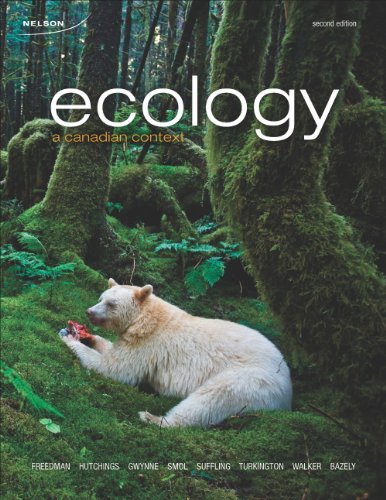
Ecology: A Canadian Context by Bill Freedman (2014-04-21)
by Bill Freedman;Jeff Hutchings;Darryl Gwynne;John P Smol;Roger Suffling;Roy Turkington;Richard Walker;Dawn Bazely
Nelson College Indigenous
This is the first comprehensive exploration of why human security is relevant to the Arctic and what achieving it can mean, covering the areas of health of the environment, identity of peoples, supply of traditional foods, community health, economic opportunities, and political stability. The traditional definition of security has already been actively employed in the Arctic region for decades, particularly in relation to natural resource sovereignty issues, but how and why should the human aspect be introduced? What can this region teach us about human security in the wider world? The book reviews the potential threats to security, putting them in an analytical framework and indicating a clear path for solutions.Contributions come from natural, social and humanities scientists, hailing from Canada, Russia, Finland and Norway. Environmental Change and Human Security in the Arctic is an essential resource for policy-makers, community groups, researchers and students working in the field of human security, particularly for those in the Arctic regions.
Springer
3642123147
The first evidence on the adverse effects of organic pollutants on Arctic ecosystems was provided by international research initiatives more than 30 years ago. Today, the indigenous people of the North are considered to be affected by exposure to persistent organic pollutants (POPs) and metals through their traditional marine food sources. The occurrence of pollutants of emerging concern in remote Polar environments is considered an essential criterion for prioritising this (largely neglected) type of contamination in national, international and global regulation schemes. Initiated during the first international Polar Years (IPY 2007-2009) and continued afterwards, 11 representative initiatives and projects are summarised as chapters in this book, which highlights today’s interdisciplinary research on POPs in the Polar environment. The individual chapters describe in detail the consequences, priorities and perspectives of international research on POPs (legacy and emerging xenobiotics), its implications for regulations and scientific priorities including societal and cultural developments in the Arctic, as well as conservation priorities in Antarctica. This book is intended for all readers interested in learning more about modern research on environmental pollutants in the Polar environments (with a strong focus on Arctic environments). The impacts of pollution and climate change on Polar regions and the world as a whole will continue to be felt for many years to come. Sound science is, thus, vital in order to underpin actions that need to be taken at the global, regional and local levels. This book contributes to this highly relevant, interdisciplinary environmental scientific endeavour.
In What can a biologist learn about the science – policy – politics spectrum from working with social scientists?, Dawn Bazely adapted her blog describing one of her research areas as director of York University's sustainability research institute 2006-11 & 2012-14. This research has aimed to determine whether the overtly political human security policy framework has any relevance for ecologists doing applied research with possible policy implications.
Dawn Bazely at Google Scholar
Published by Diverse publishers
Dawn Bazely has published nearly 90 books, journal articles, chapters and reports. Browse her publications at Google Scholar.
URL: https://scholar.google.ca/citations?user=d2Z2AZ4AAAAJ&hl=en&oi=ao
Biography
Dawn Bazely is a professor of Biology in the Faculty of Science at York University in Toronto, where she has taught since 1990. She was Director of IRIS, the university-wide Institute for Research and Innovation in Sustainability (2006-11 and 2012-13). At IRIS, Bazely's mission was to develop, lead, and support interdisciplinary research on diverse fronts. The Globe and Mail's 2014 Canadian University Report singled her out as York University's HotShot Professor. She trained as an ecologist in the field of plant-herbivore interactions, and has carried out extensive field research in grasslands and forests, from temperate to Arctic regions. She holds a B.Sc. in Biogeography and Environmental Studies and an M.Sc. in Botany from the University of Toronto. Her D.Phil. in Zoology, from Oxford University’s Edward Grey Institute in Field Ornithology, looked at sheep grazing behaviour.
Recognition/Reconnaissance
President's University-Wide Teaching Award | Professional
In the category of tenured faculty who have been at York University for over 10 years. I was previously nominated in this category in 2004, by different students. http://yfile.news.yorku.ca/2013/05/13/four-recipients-of-presidents-university-wide-teaching-awards-embrace-teaching/
Globe and Mail's 2014 HotShot Professor at York University | Professional
Dawn Bazely, winner of York’s 2013 teaching award, spearheads research at the Institute for Research and Innovation in Sustainability.
Past Talks
Public Talk: Did our habitat restoration effort work?
High Park Stewards Sunday Talks
Howard Park Tennis Club, Parkside Drive, Toronto, January 24, 2016
Inch by inch, row by row, here’s some botanical information to help your garden grow
Royal Canadian Institute, Public Lecture
City of Mississauga Central Library, 301 Burnhamthorpe Road, April 6, 2017
Conflicts in Conservation: Should we save the parasites?
Café Science Panel with Science North & Laurentian University
Sudbury, Ontario, February 23, 2016
Research Grants
Many peer-reviewed grants
Organization: NSERC, SSHRC, CIHR, Federal, Provincial, Municipal governmentsGrant amount: > $1 million
Details:
Please contact Dawn Bazely for specific grant details.
Gas, Arctic Peoples & Security
Organization: International Polar Year: Canada & NorwayDate: September 10, 2016
Grant amount: $1.8 Million
Details:
This international, interdisciplinary project, for which Dawn Bazely was the Principal Investigator of the Canadian arm, while Gunhild Hoogensen was the Principal Investigator of the international team, demonstrated the the Human Security concept is applicable to the arctic regions of Global North countries.
More information: http://ipy.arcticportal.org/news-a-announcements/item/2132-gaps-the-impacts-of-oil-and-gas-activity-on-peoples-in-the-arctic

